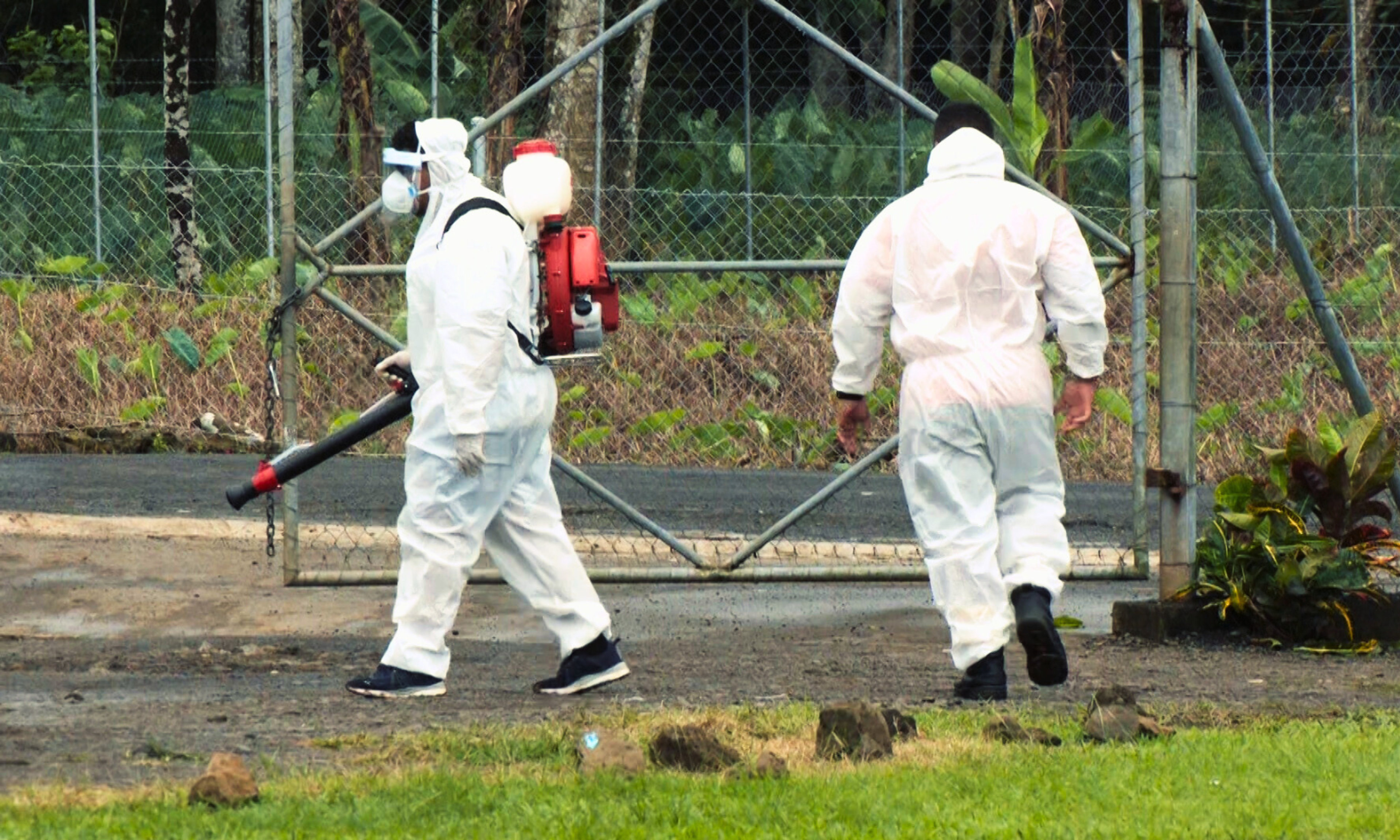

Greyhound racing continues at Manukau Sports Bowl, as calls grow to repurpose the space for local athletics.
Photo/The University of Auckland
Activists rally for closure of Manukau Greyhound Racing
Animal rights advocates have cited escalating harassment from trainers and safety hazards at the facility.


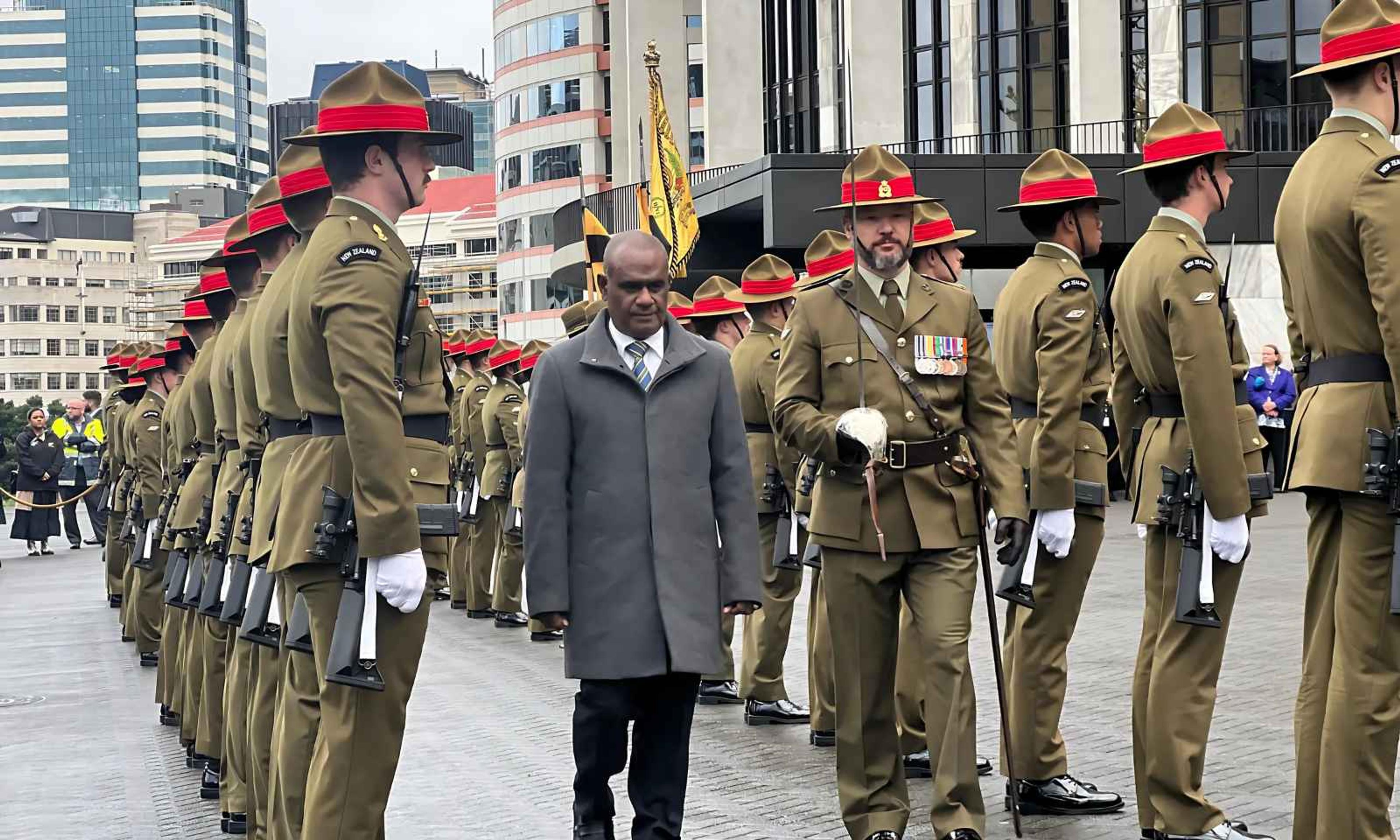
Solomon Islands PM concludes visit to NZ, strengthens education and fisheries alliance

Pacific families bear the brunt of public housing evictions - local leaders

Ōtara charity eyes community recycling centre to combat waste and empower locals


Another child lost to dengue in Sāmoa, health official confirms

Solomon Islands PM concludes visit to NZ, strengthens education and fisheries alliance

Pacific families bear the brunt of public housing evictions - local leaders

Ōtara charity eyes community recycling centre to combat waste and empower locals
Members of Freedom for Animals have reported regular verbal and physical threats from greyhound racing trainers, prompting them to request that the council expedite the track’s closure due to safety concerns, escalating violence, and the community’s growing need for the space.
Dr Michael Morris, a long-time animal rights advocate, spoke to the Ōtara-Papatoetoe Local Board on Tuesday night, arguing that greyhound racing has no place on public land.
“They’re not here to feed people or test medicines. They’re here to promote problem gambling and get their jollies from animal abuse,” Morris says.
His fellow campaigners, Deno Stock and Jen Stone, who have led peaceful protests at the track for more than a year, reported that threats from greyhound trainers have intensified in recent months.
“We get abused physically and verbally,” Stock says. “I had a guy do a gun signal at me and say, ‘Your time will come, Deno.’ He said he knew where I lived. It’s frightening, but we’re not going to stop. We’re going to be there right to the end.
“We’ve had men try to rip down our banners, call us names, and try to take our phones,” Stone says. “We’ve had to buy body cams and walkie-talkies just to feel safe.
“We call the police every week to notify them that we're there and we get a police number so that if there is an issue, we can dial 111 and reference that number and they have a better idea of where we are and location to find us quickly,” Stone says.
Safety concerns and community needs
The group raised serious issues over the racetrack’s infrastructure, submitting photos to Auckland Council that showed bent, rusty fencing and gates that were falling apart.
“There are bars sticking out 900 millimetres into public walkways, at toddler head height,” Stone says. “One gate is hanging on by a single hinge and has been like that for months. It’s not just unsafe for us, it’s unsafe for kids who play there every weekend.”
Council staff confirmed they would refer these safety concerns to parks personnel and prioritise them as a health and safety issue.
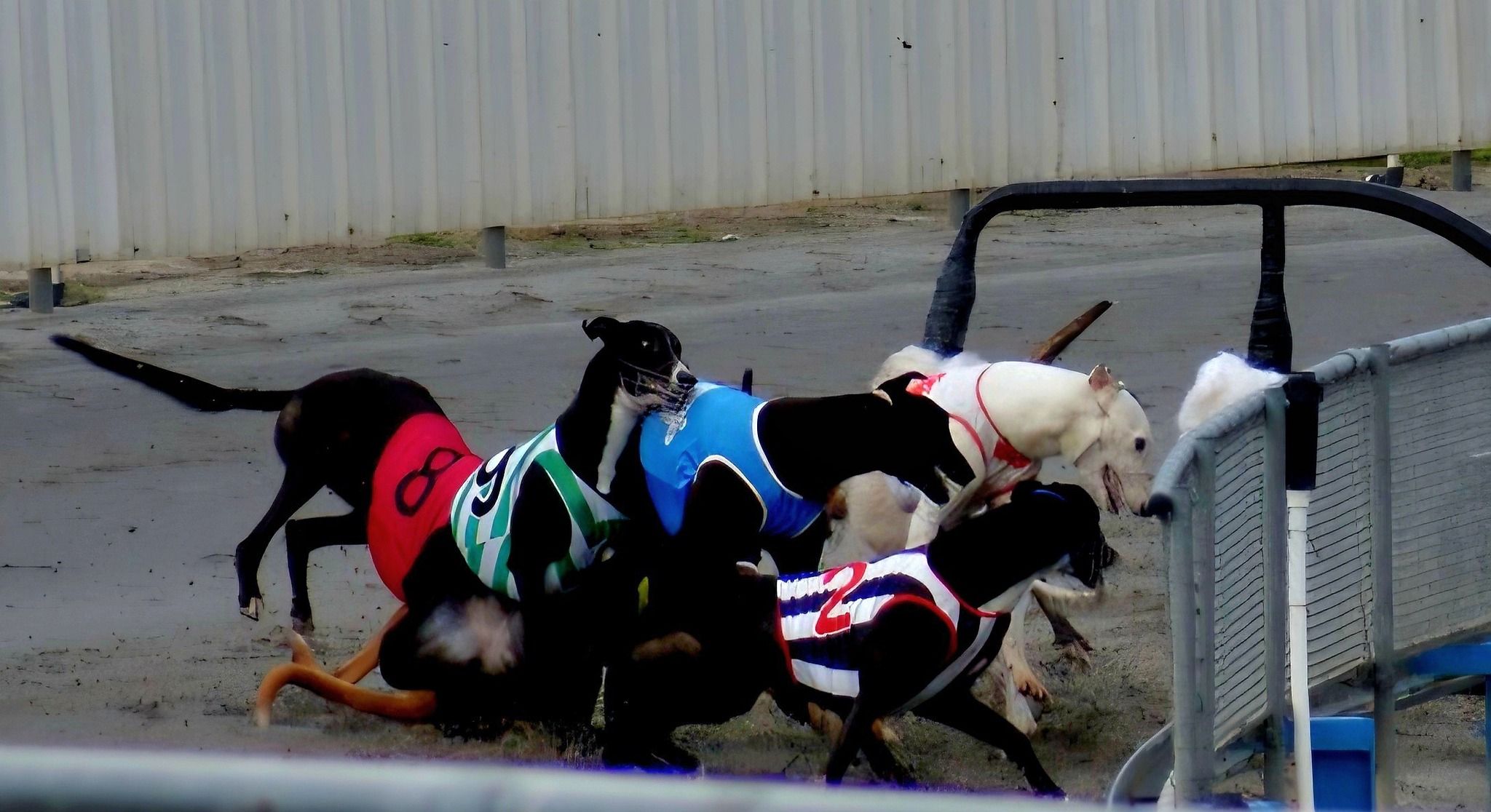
Greyhounds at the Manukau Sports Bowl track. Photo/Facebook Deno Stone
Community wants sports facilities, not racing
Campaigners believe the land would be better used as a community sports facility, such as basketball courts or an athletics stadium, than for greyhound racing.
“I saw kids playing there on the weekend,” Stone says. “They could be the future athletes of this area. There’s so much potential if we invest in them instead.”
The racetrack is leased to the greyhound club on a month-to-month basis. While the Government has signalled its intention to phase out greyhound racing nationwide, a judicial review is currently delaying legislative action.
Council officials state that they are bound by legal advice and lease conditions, which give the greyhound club the right of renewal unless the council can prove a funded alternative use for the site.
Local board reponse
Apulu Reece Autagavaia, chair of the Ōtara-Papatoetoe Local Board, says that while the board is working within legal constraints, they seek to make progress.
“One of the questions we ask our staff is, what is the most expedient way to get this done? What is the fastest way we can get the supports off our public spaces? We’re definitely trying to push the barrel as far as we can, but within the bounds and advice staff give us,” he says.
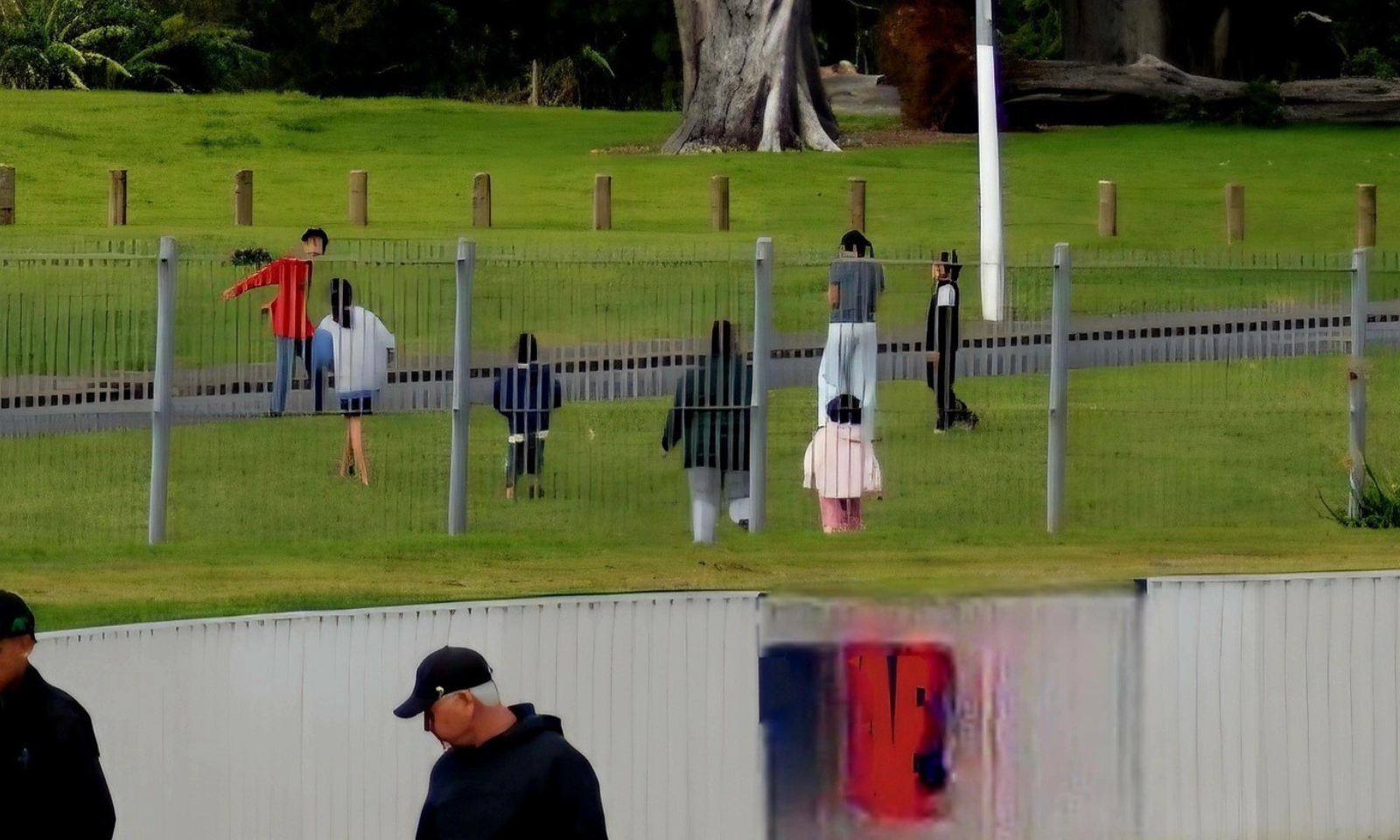
Young locals look forward to the day the greyhound track becomes a space for athletics. Photo/Facebook Deno Stone
“Please come again if you feel like we’re taking too long. Keep us accountable to that.”
Vi Hausia, deputy chairperson of the Ōtara-Papatoetoe Local Board, acknowledged the protesters’ commitment and regarded the threats they experienced as serious.
“There is a freedom to protest, and it should be done safely,” Hausia says. “If the trainers’ behaviour continues, we need to consider what council can do to protect protesters and uphold democratic rights.”
“I hope that through this public conversation, which is recorded and open, the members of Greyhound are aware that their actions are known. Hopefully, that influences a change in behaviour. If not, then we can look at how council can help. People have a right to protest, and it should be done safely.”
Dr Ashraf Choudhary, a local board member, thanked the activists for their efforts and shared his own history of protest.
“I’d like to thank and commend Michael and your team. I know you’re very committed. I also want to acknowledge the letter you sent me, Michael. Like you, I have a history of protesting.
“Forty years ago, I was out protesting the Springboks during the apartheid days. So I understand your commitment. I come from the left too, and we do our bit. But as the Chair has said, we have to follow the law and the proper process.
“These things have to be dealt with in Parliament, and unfortunately, it does take time. So I just say, good on you. Keep the good work going. We’ll do as much as we can to support change.”
What happens next?
The local board is reviewing the protesters’ evidence and says it is actively seeking funding to support a new use for the site. If successful, that could trigger lease cancellation.
“We’re going to be there right to the end,” Stock says. “We’re not going anywhere.”
LDR is local body journalism co-funded by RNZ and NZ On Air.
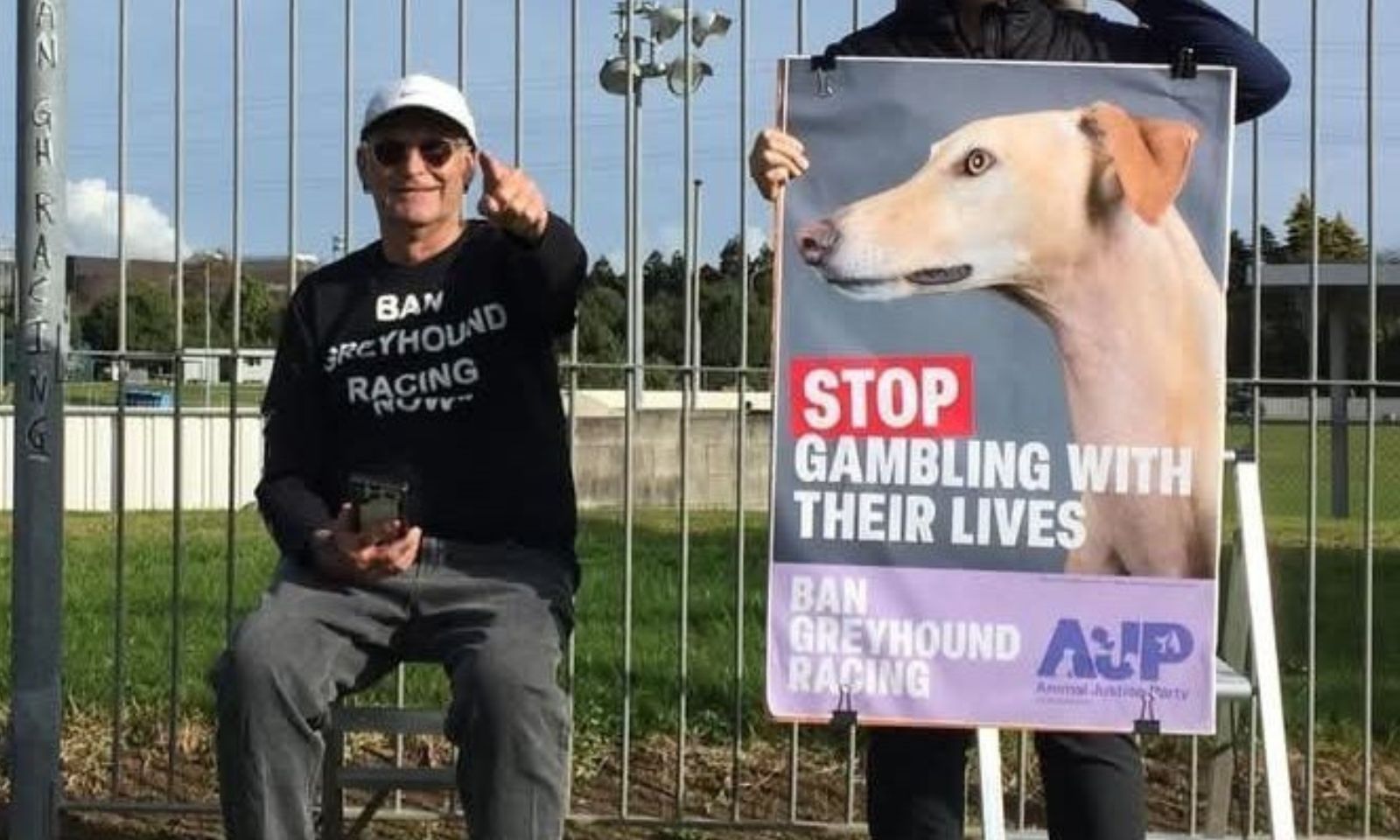
“We’re not going anywhere,” says protester Deno Stock, who continues to speak out against greyhound racing at the Manukau track. Photo/Facebook Deno Stone
